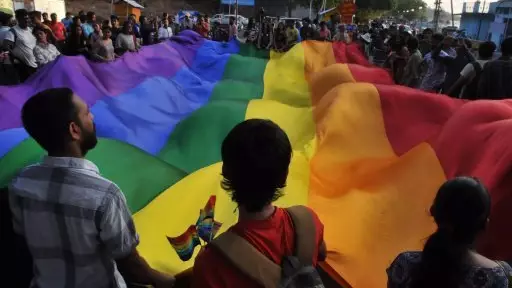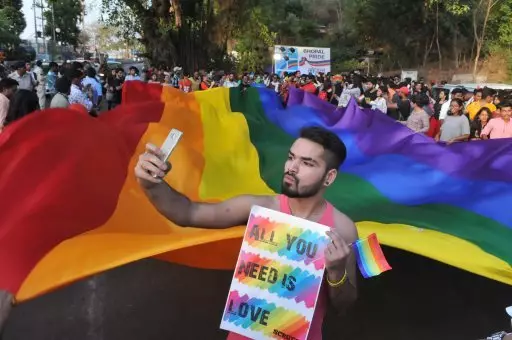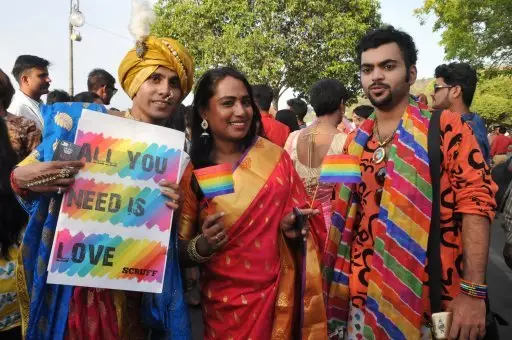
It's another historic move in the history of LGBT+ rights as India's Supreme Court ruled that people can express their sexuality freely, without discrimination.
Judges ruled in favour of gay rights, meaning that discriminatory practices against LGBT+ people can be challenged in court, reports the Independent.
Their ruling means that sexual orientation is covered under clauses in the Indian Constitution that relate to liberty, despite the fact the government claim there is no legal right to privacy.

Credit: PA
A Supreme Court judgement read: "Sexual orientation is an essential attribute of privacy.
"Discrimination against an individual on the basis of sexual orientation is deeply offensive to the dignity and self-worth of the individual.
"Equality demands that the sexual orientation of each individual in society must be protected on an even platform."
The ruling is likely to see Section 377 of the country's penal code, which bans sexual activity 'against the order of nature', which many have interpreted as gay sex, struck out.
The section was initially removed by the High Court of Delhi in 2009, but the Supreme Court overruled claiming it has a 'responsibility of Parliament', not the judiciary, to change the law.

Credit: PA
Over one billion people live in India, and privacy is a huge subject of debates at the moment. People want the law to change so that privacy is a 'fundamental right'.
The Indian government had argued that the constitution included no right to privacy - arising from their rollout of a biometric identification programme, called Aadhaar.
The programme gives every Indian a 12-digit number which matches their retina scans and fingerprints.
It's a move which has been criticised heavily by civil rights activists.
The government has said that it would respect the ruling by the Supreme Court but questioned how much impact it would have.

Credit: PA
Ravi Shankar Prasad, the country's Law and Justice Minister, said: "The right to privacy is not absolute. It is to be determined on a case by case basis."
Earlier this year, in June, Germany became another country to make waves in the progression of gay rights
Europe's most powerful country voted in favour of same-sex marriage - with 393 lawmakers approving the move to 226 who did not. Chancellor Angela Merkel was reported to have voted against the decision.
The German legal code now read: "Marriage is entered into for life by two people of different or the same sex."
Advert
Source: The Independent
Featured Image Credit: PA